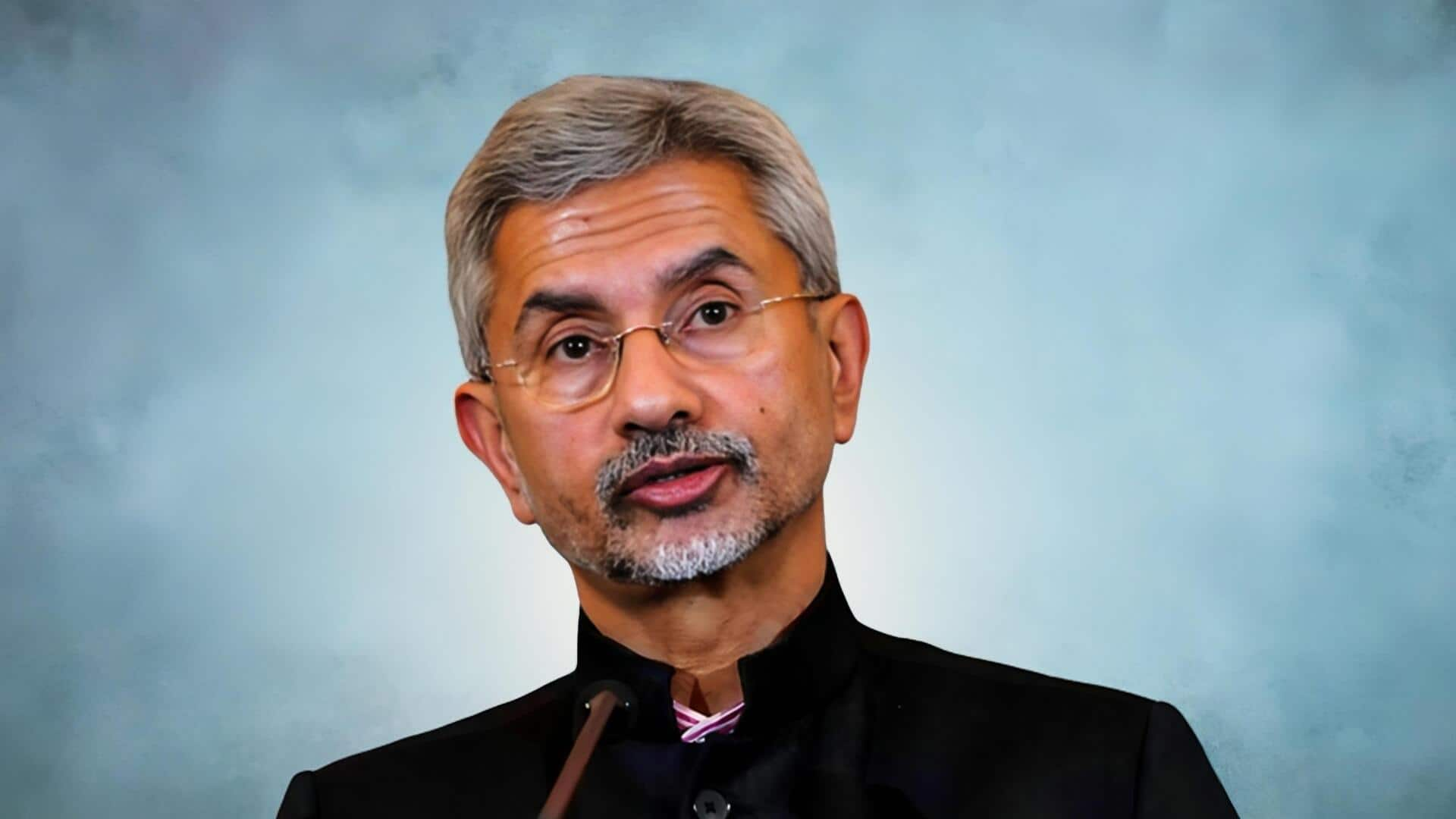
Get over 'West is bad guy' syndrome: Jaishankar to China
What's the story
External Affairs Minister (EAM) S Jaishankar on Sunday took an indirect swipe at China, saying that there was a need to move beyond the "syndrome" of seeing the West as the "bad guy." He further noted the West wasn't flooding Asian and African markets with "cheap goods," indirectly referring to Beijing. In an interview with Malayalam news channel Asianet, he urged for a more nuanced understanding of international relations and global trade dynamics, highlighting the complexities inherent within these domains.
Context
Why does this story matter?
Border issues have strained India-China relations for decades amid Beijing's fight with the West over global supremacy. However, bilateral ties reached an all-time low in 2020 when Indian and Chinese soldiers clashed in Ladakh's Galwan Valley. The mutual hostility has been worsened by China's offensives and recent attempts to grab Indian territory. Moreover, following the row over a new Chinese map showing some Indian territories in China, President Xi Jinping skipped the G20 Summit and sent Premier Li Qiang instead.
S Jaishankar
World is more complicated, embrace nuance in international relations: Jaishankar
In an indirect reference to China, Jaishankar told Asianet, "It is not the West which is flooding Asia and Africa with goods on a massive scale. I think we need to get over the syndrome of the past that the West is the bad guy and on the other side are the developing countries." "The world is more complicated, the problems are much more complicated than that," he said. Jaishankar encouraged a shift from viewing world affairs through "narrow lenses."
Details
Resentment among developing countries as 'cheap products' flood markets
Moreover, Jaishankar highlighted the underlying resentment and pain of developing countries regarding the inequities of globalization. He emphasized this resentment has been building up for 15-20 years now. These countries have been seeing their products, manufacturing, and employment come under stress due to the flooding of "cheap goods" in the markets, he added, referring to China. The COVID-19 pandemic and the conflict in Ukraine have only exacerbated these issues, resulting in rising prices of energy and food items, Jaishankar said.
Insights
Decoding G20 Summit outcome, Xi's absence at event
Responding to a query as to why Chinese President Xi skipped the G20 Summit in New Delhi, Jaishankar said the reasons were "open for speculation." However, he said India was able to get the influential group of nations to focus on growth, development, and the Global South initiative. "By doing the Voice of the Global South (summit) and bringing 125 nations together, we straightaway shaped the agenda," Jaishankar said.
UNSC
Jaishankar's pitch for India's permanent seat on UNSC
Separately, Jaishankar on Sunday presented a strong case for a permanent seat for India on the United Nations Security Council (UNSC). "What would happen if they (UNSC) do not reform? People will find solutions outside. And this is a message the UN has to understand," Jaishankar said. The statement came during an interaction with the faculty and students of the Indian Institute of Space Science and Technology (IIST), Thiruvananthapuram, on "G20 and Vikasit Bharat."